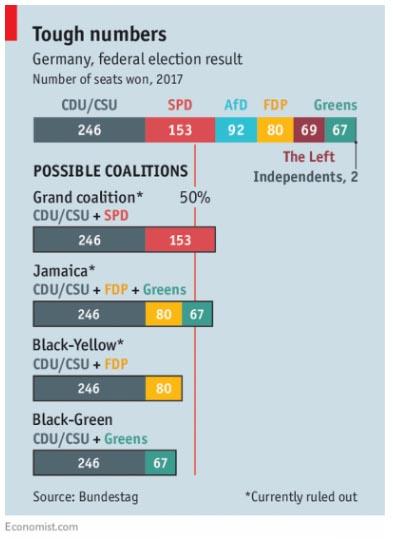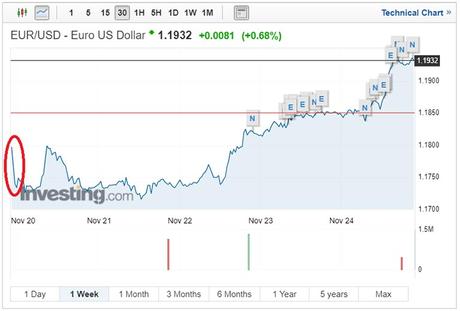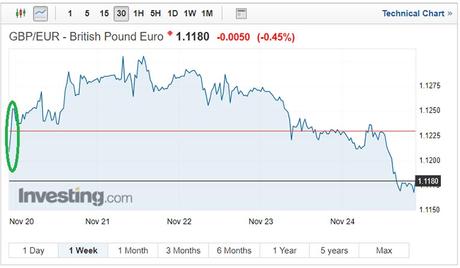Euro exchange rates hit the rocky ground at the beginning of the week following Angela Merkel’s Christian Democratic Union party’s inability to reach an agreement at the latest round of coalition talks with the FDP party eventually abandoning talks. Coalition party talks began following Merkel’s unsuccessful September election campaign which saw her lose her majority government. Since, the CDU have been trying to keep a coalition on the course and have been attempting to form a government with a handful of parties including the FDP, the Christian Social Union (CSU), the left-wing Greens and Merkel’s ruling party the CDU.
Jamaican coalition negotiations
The investigative dialog had been in full swing last weekend with the four parties discussing the possibilities of creating a coalition, now being dubbed the Jamaican coalition due the colours of the three parties flags resembling those of the Jamaican flag. Its understood the parties discussed the formalities of the forming the coalition plus key political points including immigration, German investment promotion, Taxation and future vision of Germany.
It would appear that many of the points above were too uncomfortable for the Free Democratic party and too much of a contrast to the FDP party’s vision on modern Germany. The party which represents a forward-thinking pro-business voter. Eventually, it appeared that common ground was too sparse and the FDP party leader, Mr Christian Lindner called time on discussions stating:
It is better not to govern at all than to govern wrong.
Essentially opening the door to another German election and creative much-unwanted uncertainty for the premier EU nation, and arguably the EU.

Merkel’s downbeat post-coalition talks press conference
As Sunday night turned into Monday morning and talks were abandoned by the Free Democratic party a press conference was held by the parties involved. Apparently, during the initial conversations, there had been encouraging deliberation with Jürgen Trittin a green party politician stating
“There were opportunities for agreement”
Whilst a Christian Social Union (CSU) politician Gerd Muller claimed:
We actually had the breakthrough now.
In the sombre downbeat conference Merkel claimed that the day had been one of reflection, continuing the current German chancellor stated:
We believe we were on a path where we could have reached an agreement.
How Euro exchange rates were affected
Following the conclusion of the talks, Monday early morning press conference and the trading in Asian markets Euro exchange rates faltered with the single currency falling against a host of majors.
EUR/USD jolted lower opening at 1.1797 and falling to 1.1726 in just a few hours. Over the week EUR/USD corrected its position and was buoyed by a raft of positive data including services and manufacturing data.

The pound also briefly benefitted in early trading on Monday morning but was pushed by a less than inspiring UK Budget speech which growth forecasts paired back. GBP/EUR did benefit in the first few days of trading with GBP/EUR moving sharply from 1.1209 to 1.1252 and enjoying a week high of 1.1305. Unfortunately, the GBP/EUR also touched a week low 1.1168 closing just a touch higher 1.1180.

A possible coalition between CDU and Social Democrats?
Mercilessly for Merkel in recent days members of the Social democrat party would have appeared to signal their agreement to renewed coalition discussions. Martin Schultz the Social Democrat party leader is believed to welcome dialog for the sake of Germany and Europe following the failed Jamaica coalition.
One thing is very clear: Merkel is fast running out of options and has already passed the deadline to form a coalition. Although this may not be the perfect option for both parties Merkel may prefer this avenue over a second general election.

